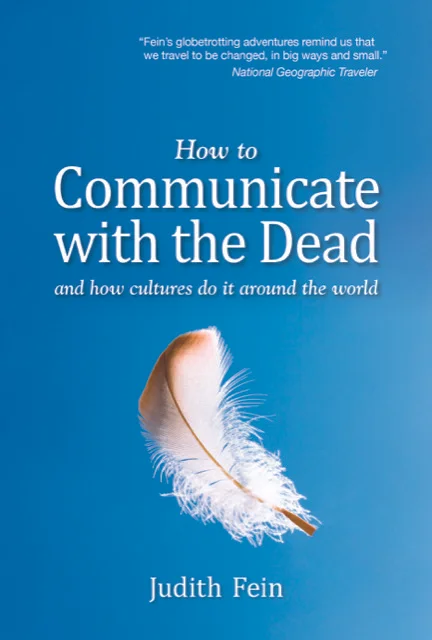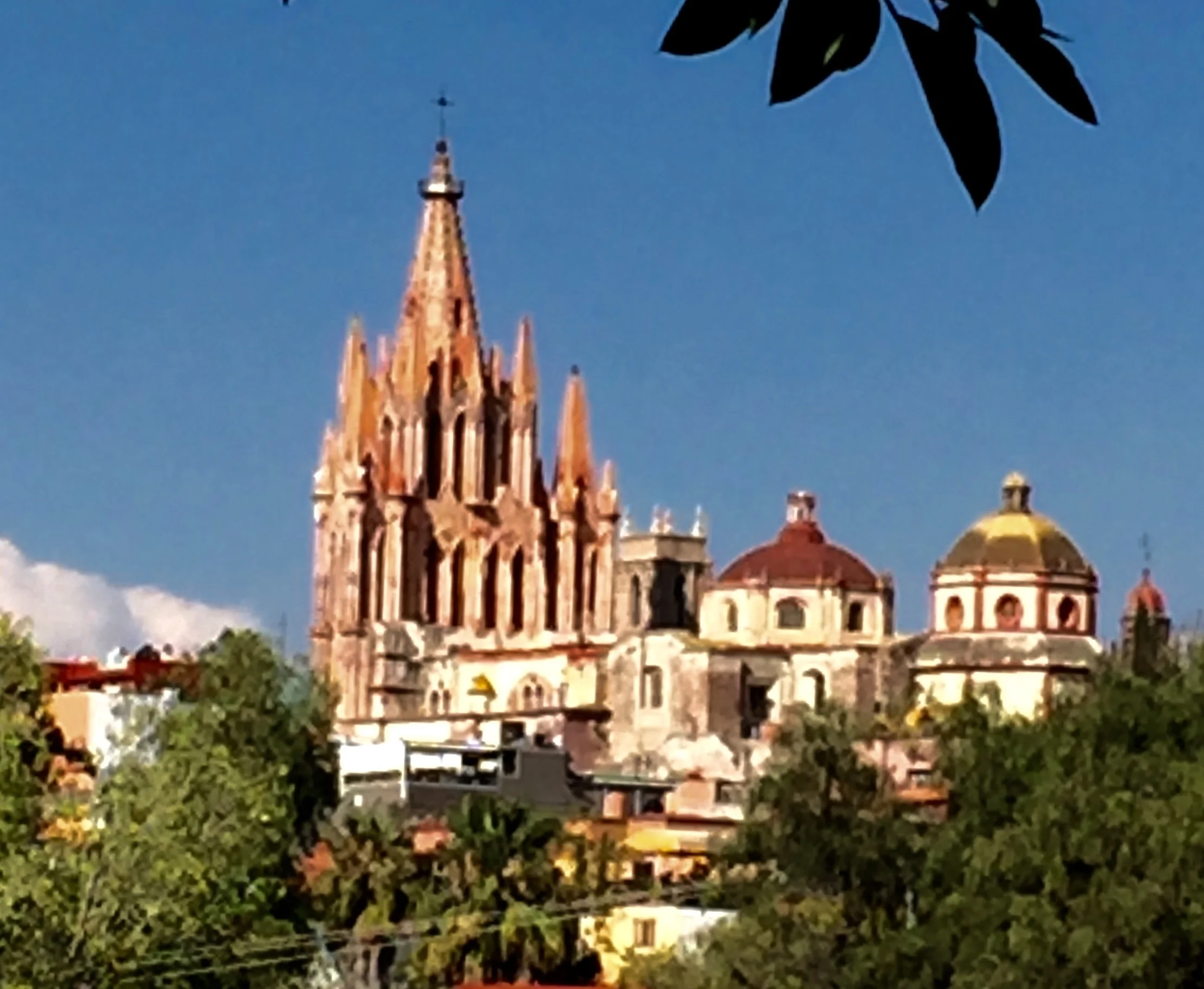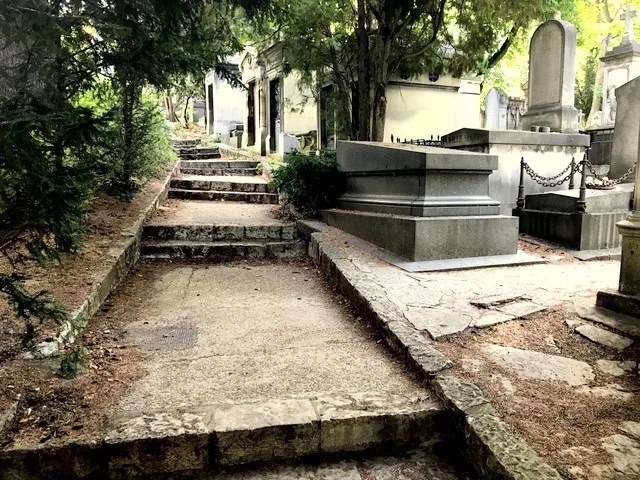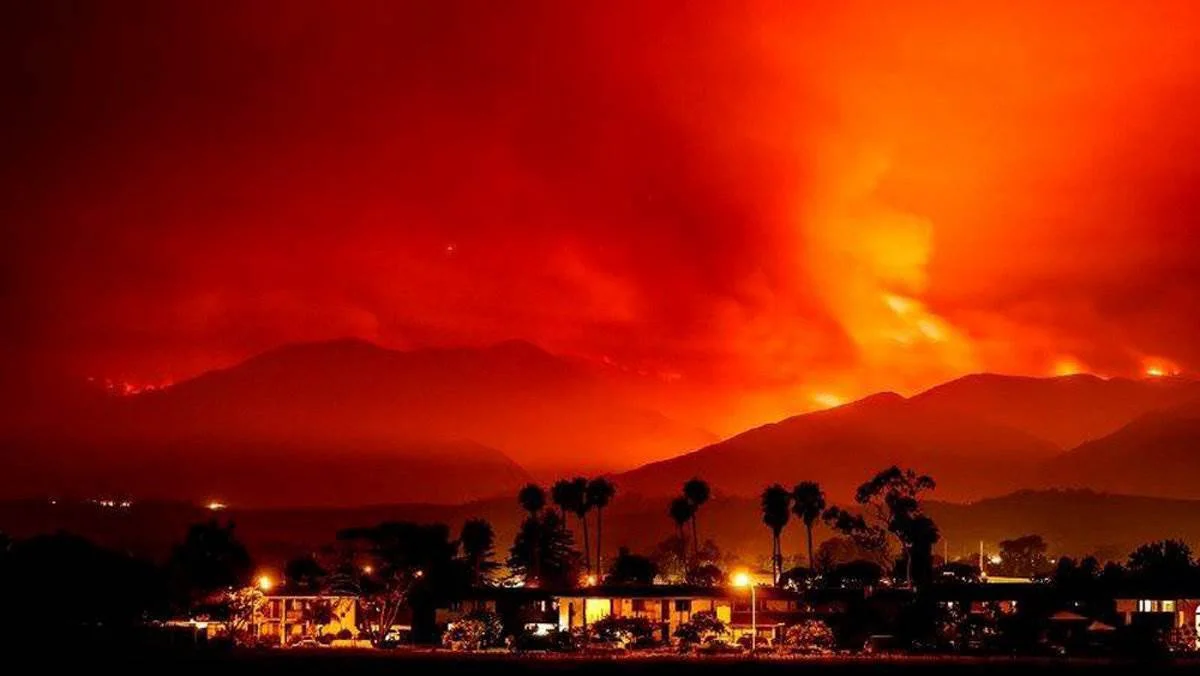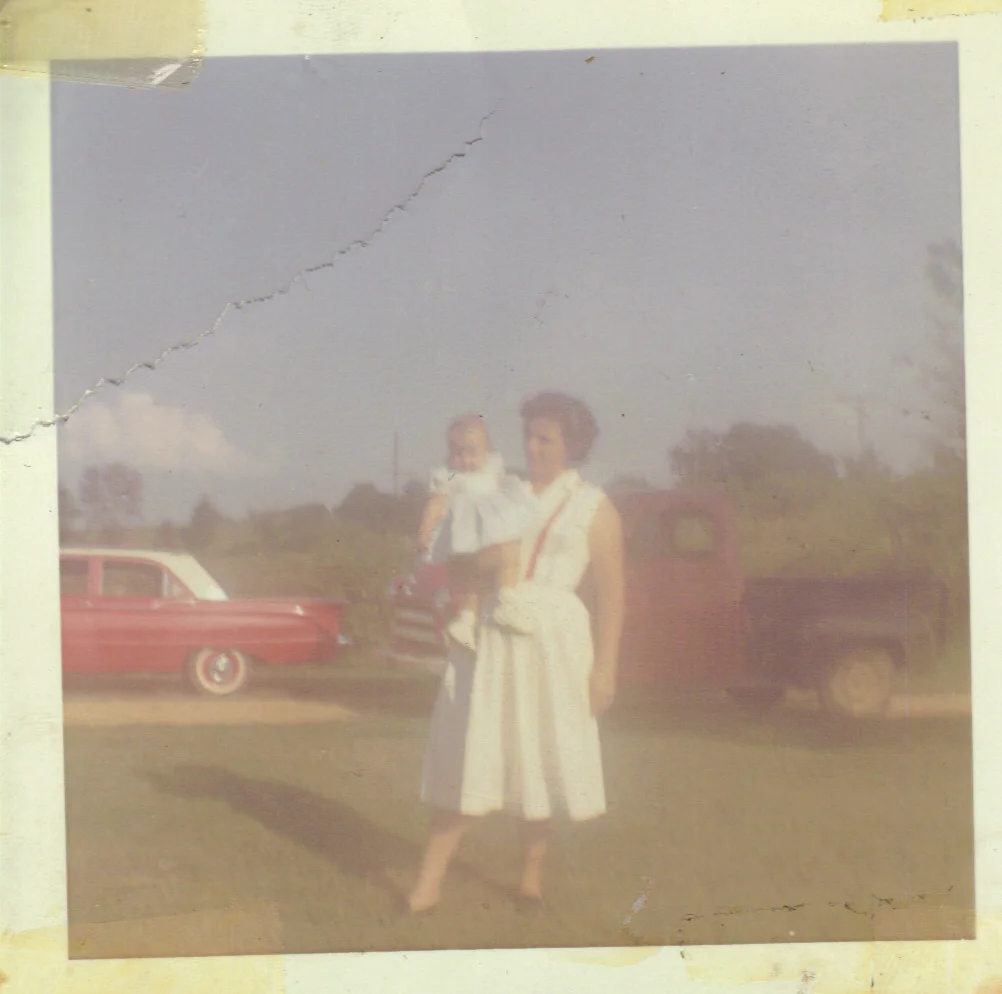Maureen Magee grew up as an only child. The word ‘family’ had no great, extended meaning for her. But now, after seven decades of life, she finds herself seized with a gripping kind of curiosity about her Dad’s family and has begun writing letters to the uncles she never knew.
All in Loss
Finding My Father
As Cliff Simon approaches seventy, he sees that his face resembles that of the father who died when Cliff was fifteen. He wonders about the Polish immigrant father he never really knew, whether the feeling of being out of place in the world was inherited from him, and if his dad ever thought about such things.
Purrdling With My Cat
To lower her anxiety over the past few months, Nancy King has found solace in solitary hikes along Santa Fe trails and extra time to purrdle, a word she’s coined during the pandemic, with her dying rescue-cat Mia.
A Zulu Healing in South Africa
This article is an excerpt from the new book, HOW TO COMMUNICATE WITH THE DEAD…and How Cultures Do It Around the World, by YourLifeisaTrip.com executive editor Judith Fein.
Finding My Mother in San Miguel de Allende
Only weeks after her mother’s passing, Laurie Gilberg Vander Velde traveled to San Miguel de Allende, Mexico, on a previously scheduled vacation. San Miguel was also the place where twenty-four years earlier her mother had sought refuge from grief and Laurie finds memories of her mother everywhere.
Lipstick Kisses, Chewing Gum and Terrorism in Paris
For expat Keith Digby, the tragedy of the French terrorist attacks turned unexpectedly personal during a visit to Père Lachaise Cemetery, Paris' best-known resting place.
My journey with Flea
On a fateful day in 2003 when Canadian expat Chris Pady and his wife Michele befriended a young stray dog on the streets of Tainan, Taiwan, they never imagined the many ways their new best friend 'Flea' would change their lives forever.
Surviving the Sonoma County Fire and How You Can Help
Early Monday morning on October 9, 2017, Katya Miller was roused from bed and evacuated from her Sonoma County home by raging wildfires. She takes you with her on her frightening journey, and tells how you can help.
Goodbye Hello: Jerry and Santa Cruz
When Jules Older received a Farewell Party invitation from a friend in Santa Cruz, California, he made the trip not only to say goodbye to an extraordinary man but also to discover the hometown that his friend so dearly loves.
A Love Story on a Wall in Toronto
A random encounter on a train to Toronto leads Melanie Kitzan to a bar in Graffiti Alley and the powerful love story of a new friend.
Last Train Home
When Melanie Kitzan traveled by train to visit her dying mother, conversations with random passengers had a surprisingly powerful impact.
Finding Peace in Sand
During a visit to the island of Key West, Florida, writer Kristine Mietzner encounters a Tibetan Buddhist ceremony involving the creation and destruction of a Sand Mandela and finds peace in a troubled relationship.
Scents of the Past
Smell is one of the most powerful senses. One whiff of a familiar scent can invoke a form of time travel. When Debbie Wilson opened a present containing her mother’s favorite perfume, she didn't know that its scent would transport her back to her childhood. But it did. Suddenly, she was eight years old again wrapped in her mother's love and comfort.
Bereavement Abroad: When the unthinkable happens and you're not there.
Ellen Barone awakened in Medellin, Colombia, to the news that her dad, who lived in Utah, had fallen and broken his hip and hand. Soon afterward, he was cleared for immediate hip surgery, and from there, things escalated—and deteriorated—quickly.
Final Journey
by Leslie Anne Wood
My cell phone rang on a Saturday afternoon and the news was not good. My father had collapsed at his retirement home and had been taken to the hospital.
A Funeral in the Philippines
by BJ Stolbov
Maria Natividad Pascua Olivar has died. Nanay Mary (Mother Mary), as she was known, was 76 years old. Her husband, Ruben Olivar died suddenly 36 years ago, leaving Nanay a single mother with six young children. Her eldest, Rowell, died when he was hit by a car at 6 years old. Her next eldest, Ronaldo died suddenly of a heart attack 9 months ago at the age of 50. With her four surviving children, two daughters and two sons, all now in the 40’s, around her bed, and after a long sickness, a confluence of incurable old-age illnesses, Nanay Mary breathed her last. She died peacefully.
The Risks of Time Travel in Santa Fe
by Elyn Aviva
We punched in the entry code on the keypad on the side of the looming concrete storage building, opened the door, and walked down the empty, darkened corridors to our numbered unit. We unlocked the roll-up metal door and pushed it up, revealing a colorful hodgepodge of items stacked along the walls and piled on metal shelving units in the center. We were entering a mysterious domain, a mixture of refuse dump and Treasure Island.
This was the stuff we had left behind six years ago in Santa Fe, New Mexico, when my husband, Gary, and I moved to Spain. Now that were happily settled as expats in Girona, Catalonia, Spain, the time had come to clear out the storage unit. No more excuses.
My Father's Syria
Growing up in a suburb of Washington, D.C., I knew only bits and pieces of my dad’s life in the years before he became my dad.
I knew that both sides of our family came from an orthodox Jewish community in Syria (we ate delicacies like fried kibbehs, stuffed grape leaves and baba ghanoush, long before these foods hit the mainstream, and men sang Arabic songs at the Passover seder).
I used to be an extrovert.
Now, I consider myself an introvert with some extrovert added to the mix. I have a hearing loss. One ear is deaf and the other partially deaf. I feel like I have an invisible veil separating me from others.
Two years ago, after struggling to hear with friends, travelers, servers, family, salespeople,I checked into getting hearing aids. Each time, I felt frustration as technicians told me: “they should work.” They did not work for me. It began a path towards partial isolation and frustration.
I visited specialists at Kaiser, my medical group After test results, my doctor said, “You have a brain tumor which has damaged your auditory nerve."
“Hearing aids won’t help.”
“What?” My mind raced to thoughts of my grandfather who died of brain cancer. The doctor continued, “Good news: it is not cancer. Bad news: Permanent hearing loss with residual symptoms.”
EDITOR'S NOTE: This is a continuation of an ongoing series of insights and dispatches from Egyptian contributor Manal S. Kelig, a devoted mother, wife, tour operator, and peace promoter living in Cairo, Egypt. Our hearts go out to Manal and the people of Egypt during this difficult period.
by Manal S. Kelig
For the past 2 years Egyptians found themselves regularly facing heart-breaking choices!
When the revolution took place on 25 Jan 2011, I was not in a status to rejoice or condemn. Just one day earlier my late father had to undergo a serious operation as he was diagnosed with colon cancer.
 Celebrations in Tahrir Square after Omar Soliman's statement that concerns Mubarak's resignation. February 11, 2011 via Wikipedia CCL
Celebrations in Tahrir Square after Omar Soliman's statement that concerns Mubarak's resignation. February 11, 2011 via Wikipedia CCL
For the next two weeks we were having our own stressful events where the hospital we were in was attacked by thugs. Doctors and nurses could not come to work. Medical supplies were not delivered to the hospital. As we ran out of options and danger continued, we were forced to check out of the hospital with my father in this critical condition and have him home nursed by my sister who has no medical background except her amateur medical readings. As his condition declined, taking my father to a chemo session was over 7 hours ordeal in Cairo traffic that was continuously blocked by demonstrations and sit-ins. In April 2011 my father passed away.
While our lives were made hard due to the unstable political conditions, and as I had some friends celebrate the revolution and others dam it, I realized no matter what I have gone through I will not point fingers at any of them and blame them on what we had to face.
Our family like many others was a casual victim of the events. When we were attacked in the hospital we were not defending a cause, or chose to go in a confrontation. It was just our fate.
I knew very well many other Egyptians in different ways would be in that position in the coming period.
A New Egypt with No Leader
For the past 12 years I have regularly said in my lectures, “ No one knows what will happen when Mubarak dies, but I can predict there will be no wide acceptance of his son to take over and the different opposition parties will make sure it does not happen, but hopefully without violence. “
Then came the 2011 revolution, and like the other uprisings in Arab countries, it was driven by the dissatisfaction and anger of a new generation who formed over 60 % of Egypt’s population.
But the energy of 2011's revolutionaries was squashed by the power and organization of the already established forces in Egypt, particularly the earlier Supreme Council of the Armed Forces, the 80 years old Moslem Brotherhood movement and some remnants of the Mubarak regime.



